-A Review of Projects Supported by the Low Carbon Economy Leadership Fund-
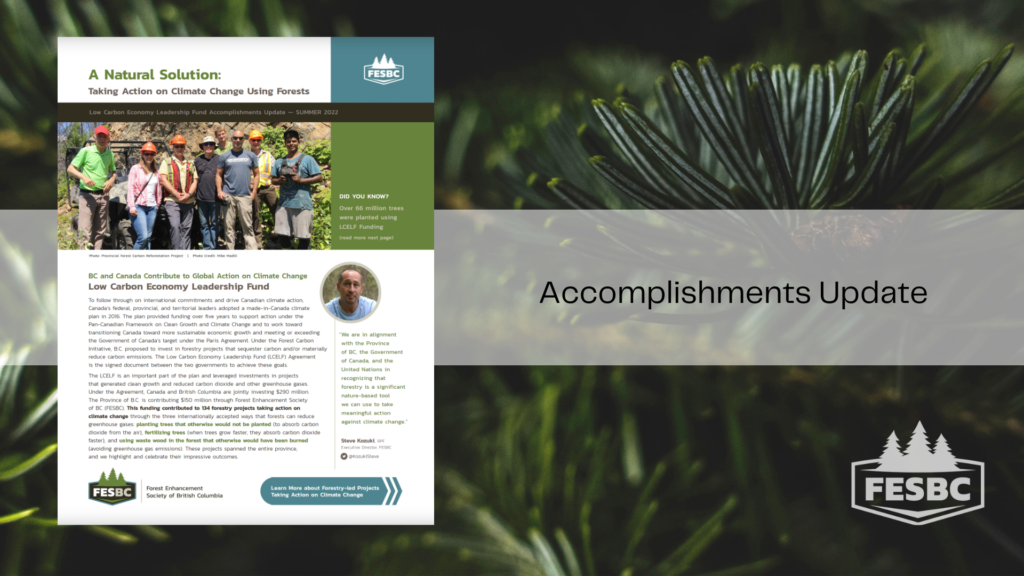
British Columbia – In a report released today, the Forest Enhancement Society of BC (FESBC) has published information on the stunning outcomes of the Province’s $150 million investment under the Low Carbon Economy Leadership Fund (LCELF), showcasing the tremendous progress made through this fund toward the Government of Canada’s targets under the Paris Agreement.
In 2017, the Provincial government deployed $150 million of its $290 million in funding from the federal government to FESBC, as a part of the federal government’s made-in-Canada climate plan. The LCELF is an important part of the plan and leveraged investments in projects that generated clean growth and reduced carbon dioxide and other greenhouse gases.
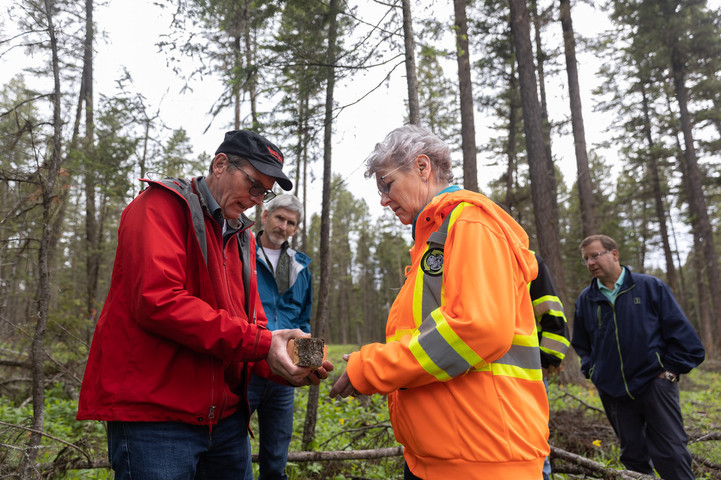
Pictured are (LtoR) Ken Day, Brian Banfill, Katrine Conroy, and Jim Snetsinger.
“The Forest Enhancement Society of BC is a proven partner that delivers on-the-ground forestry projects that protect people and communities from wildfires,” said Katrine Conroy, Minister of Forests. “Our investment in sustainable and innovative forestry projects strengthens our ability to prepare and adapt to the impacts of climate change that put our forests and communities at risk. I recently visited Williams Lake and saw firsthand how the Forest Enhancement Society of BC is working with its partners to improve forest health, reduce carbon emissions, and protect BC communities.”
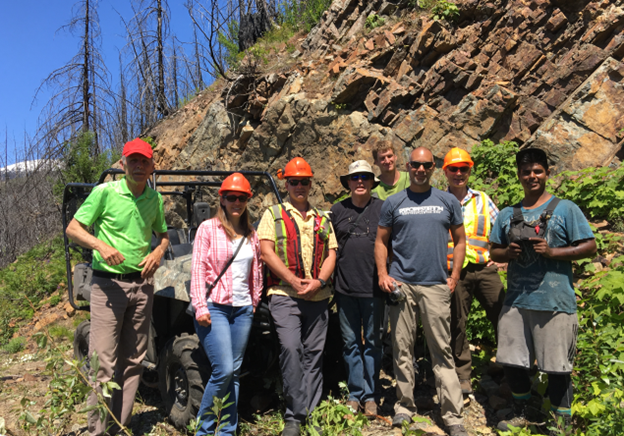
Through the LCELF funding, FESBC provided grants to 134 projects throughout the province to create 1,300+ full time-equivalent jobs*, plant 66 million trees*, and sequester approximately 4.2 million tonnes of CO2e by 2050*, which is equivalent to 904,000** gasoline-powered vehicles off the road for one year. Through these projects, FESBC met the target to reduce greenhouse gas emissions in the forest sector and increase the capture of carbon through the restoration of forests damaged by disease, insects, and wildfire, under B.C.’s Climate Leadership Plan.
The report highlights nine of the projects, examples of tree planting, fertilization, and increased utilization of wood waste.
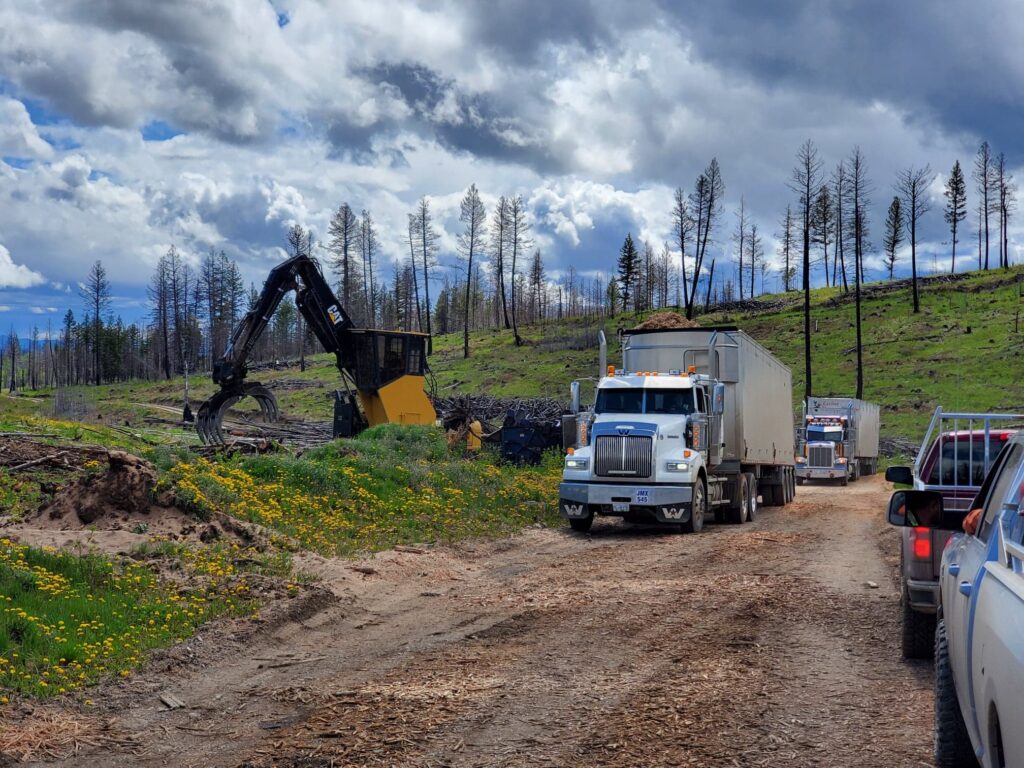
First Nations Fibre Recovery. Photo: FESBC 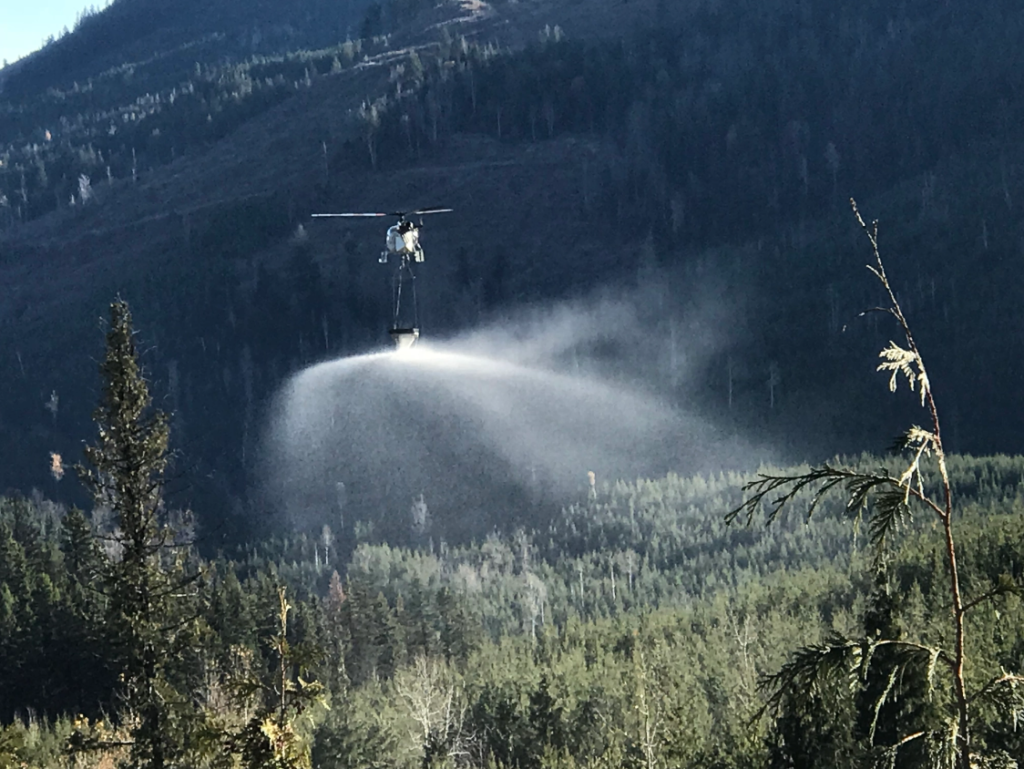
Aerial fertilization of young stands. Photo: Lower North Thompson Community Forest
“We are in alignment with the Province of BC, the Government of Canada, and the United Nations in recognizing that forestry is a significant nature-based tool we can use to take meaningful action against climate change,” said Steve Kozuki, Executive Director, FESBC. “This report showcases the impactful work undertaken by our project partners and the long-term benefits that these projects will bring to the province.”
To read the full report, follow this link: bit.ly/TakeActiononClimateChange
*with LCELF Funding since 2016 **SOURCE: calculation-greenhouse gas equivalencies calculator (US Environmental Protection Agency)
For an interview with FESBC contact:
Aleece Laird, Communications Liaison | communications@fesbc.ca | 250.574.0221
About FESBC: the purposes of FESBC are to advance environmental and resource stewardship of B.C.’s forests by: preventing and mitigating the impact of wildfires; improving damaged or low-value forests; improving habitat for wildlife; supporting the use of fibre from damaged and low-value forests; and treating forests to improve the management of greenhouse gases. As of March 2021, FESBC has supported 269 projects valued at $238 million, in partnership with governments of B.C. and Canada.
FESBC would like to gratefully acknowledge the financial support of the Province of British Columbia through the Ministry of Forests.
